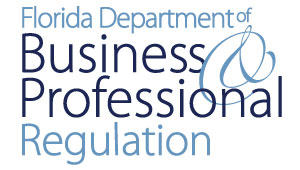BLOG
The new Florida law that establishes criminal penalties for association fraudsters should help many associations to contend with suspicious and irregular activities by unscrupulous board members.
Association boards of directors control the purse strings for their condo communities, and as such they have always made for extremely appealing targets for fraudsters who conspire to assume control via their annual elections. In a Las Vegas case, a U.S. Justice Department investigation revealed that 11 associations were defrauded of tens of millions of dollars in a board of directors takeover scheme from 2003 to 2009. Forty-one defendants were convicted of rigging board elections through such tactics as traveling to Mexico to print phony ballots, using the master key at a condominium complex in order to remove ballots from mailboxes, and retrieving discarded ballots from condo dumpsters.
The new legislation has ushered in significant changes to the state’s laws and the Department of Business and Professional Regulation’s blanket jurisdiction in upholding them. Some of the most important changes include criminal penalties for matters of willful and intentional acts such as fraud and self dealing.
Specifically , the penalties include:
, the penalties include:
- Forgery of a ballot envelope or voting certificate used in a condominium association election is punishable as a felony of the third degree in accordance with Section 831.01, Florida Statutes, which can carry a prison term of five years.
- Theft or embezzlement of funds of a condominium association is punishable based upon the amount of the theft or embezzlement in accordance with Section 812.014, Florida Statutes.
- Destruction of or refusal to allow inspection or copying of an official record of a condominium association that is accessible to unit owners within the time periods required by general law in furtherance of any crime is punishable as tampering with physical evidence in accordance with Section 918.13, Florida Statutes or as obstruction of justice as provided in Chapter 843, Florida Statutes.
- An officer or director charged by information or indictment with a crime referenced above must be removed from office and the vacancy shall be filled, unless the bylaws provide otherwise, by electing a new board member, and the election must be by secret ballot. The vacancy created by the removal of such officer or director shall be filled until the end of the officer’s or director’s period of suspension or the end of his or her term of office, whichever occurs first.
- If a criminal charge is pending against the officer or director, he or she may not be appointed or elected to a position as an officer or a director of any association and may not have access to the official records of any association, except pursuant to a court order.
- If the charges are resolved without a finding of guilt, the officer or director must be reinstated for the remainder of his or her term of office, if any.
By establishing clear criminal penalties, association fraudsters’ actions now fall under the jurisdiction of the economic crime divisions of state and local law enforcement rather than the DBPR, which is now focusing more on condominium administrative issues that do not require extensive investigations and prosecutions.
Association directors, members and managers who believe they may have evidence of criminal violations under this new law should consult closely with highly experienced association legal counsel in order to determine their next steps.

